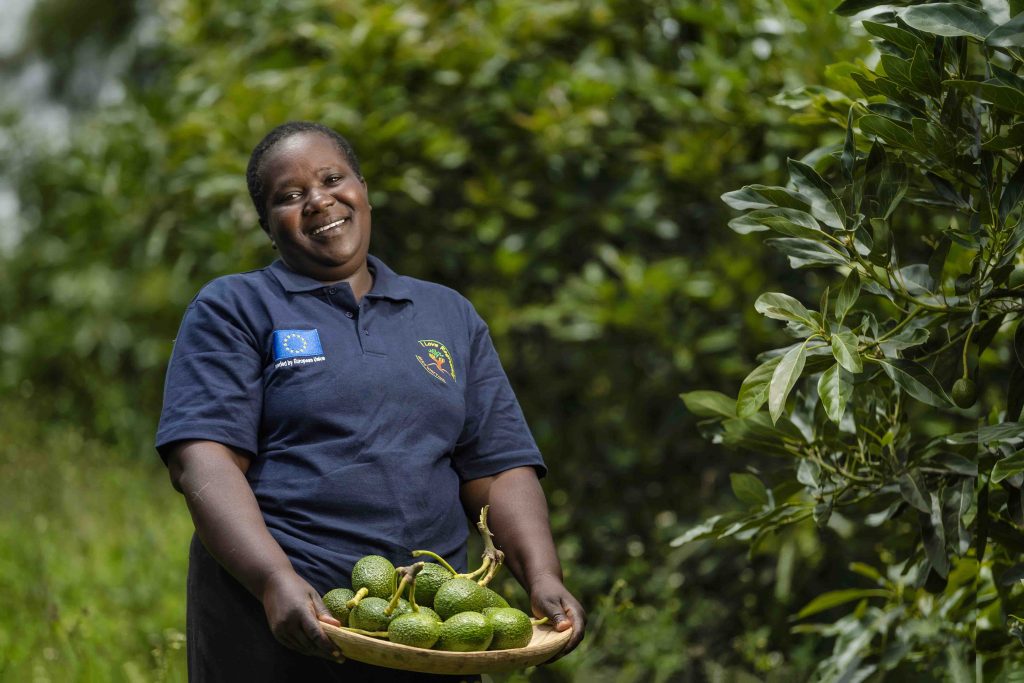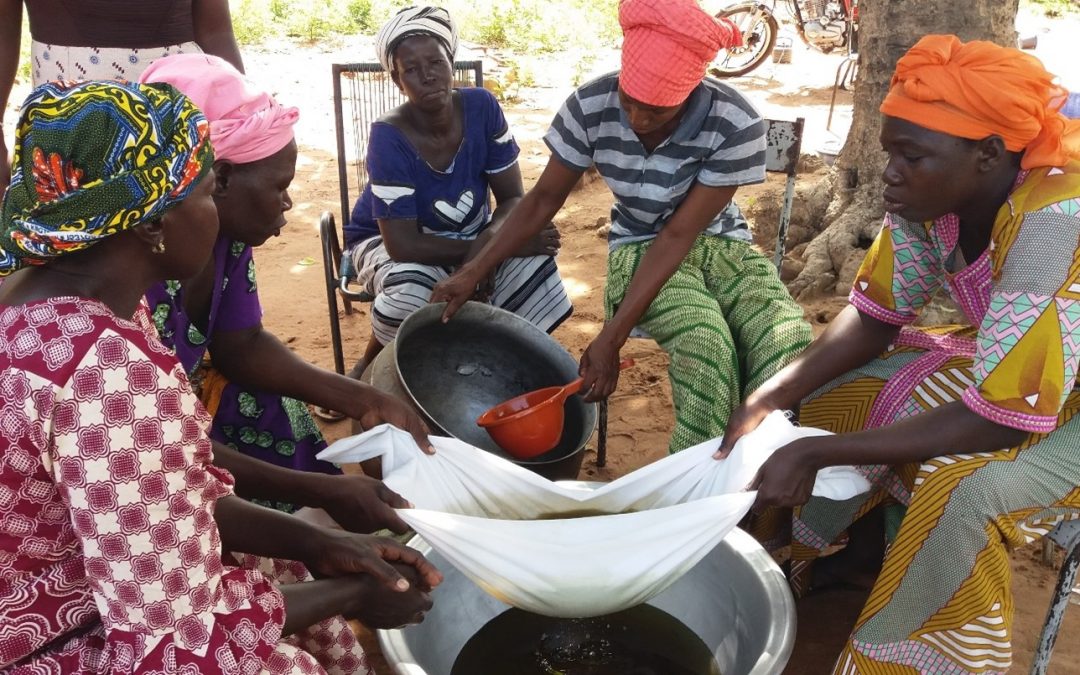Tree resources can provide a variety of economic, social and environmental benefits to local communities. Africa has a huge opportunity to increase the value of trees.
By Marion Aluoch
A recent multi-country learning event on developing and expanding agroforestry value chains as an incentive for land restoration established that localized efforts are required to ensure community engagement, benefits and sustainability.
The learning event, convened by Regreening Africa, also advocated for engaging governmental and national institutions as a means of meeting governments’ commitments to land restoration.
A diagnostic study of the value chains of shea (Vitellaria paradoxa (formerly Butyrospermum parkia)), conducted by Regreening Africa Mali partners Sahel Eco and Oxfam, found that capacity building, access to financing, marketing, entrepreneurship and business management have all been beneficial in boosting production, processing and marketing along shea value chains for women producers.
The study also revealed that boosting markets for local products can be accomplished through innovative methods — such as community radio, cooking competitions and trade fairs — to improve relationships between buyers and shea producers. The study also found that increasing investment capacity through saving groups reduced reliance on external funding. Working with cooperative societies and diversifying their products is recommended by the study’s authors to increase production and strengthen cooperative societies’ capacities to negotiate higher prices and sustain their businesses.
Josef Garvi, executive director of Sahara Sahel Foods in Niger, debunked myths about toxic and poisonous wild leaves and fruits, pointing out that many of the trees growing in the dry areas of Zinder in Niger have edible leaves, fruits and gums that provide nutritional benefits. The development of value chains from these trees can make these products available, bringing resources back to communities and promoting restoration.
‘We are fighting malnutrition, food insecurity and biodiversity loss in the Sahel,’ he said. ‘Most of our trees that are considered “shrivelled”, toxic and poisonous are yet still productive. They are also nutritious. These foods were part of our ancestral food culture and the women were involved in traditional processing techniques. Consumption of these edible plants has declined significantly, resulting in food insecurity in Niger.’
Sahara Sahel Food has stepped in to fill this void, creating value chains from the trees by producing powders, natural juices, oils, biscuits, honey and cereals as well as traditional and innovative products from trees such as the desert date (Balanites aegyptiaca), the fruit of which is used to make milk, ice cream, sour milk and cheese.
‘So far, these activities have resulted in income-generating activities for 1600 women’s groups,’ he said. ‘Women have been able to develop their entrepreneurial spirit, generate income and transform “little forests” in their communities as a result of this.’
To safeguard and sustain the ‘little forests’, the company ensures that they have a variety of trees that mature and provide fruits at different times of the year, ensuring biodiversity as well as a variety of products, thereby reinforcing business sustainability.
Women are taught reforestation techniques to ensure regeneration. To avoid over-exploitation, the company has established clear guidelines for harvesting and producers organize themselves into groups and sell their products directly, thus eliminating the use of traders who are typically not concerned with environmental conservation.
However, despite successes, the main challenge Sahara Sahel Food faces is the indiscriminate cutting of trees for firewood and animal feed.
In Kenya, World Vision through Regreening Africa has created an enabling environment for the private sector to participate in landscape restoration. The organization is collaborating with Habex Agro Limited to develop avocado value chains. Habex Agro contracts farmers, provides extension services and provides market access while World Vision Kenya mobilizes farmers, provides technical support, facilitates farmers’ training about value chains and provides tree-management training, such weeding and mulching.
 Rose Kiptoo holding a harvest from her avocado trees. Photo: Regreening Africa/Brian Gathu
Rose Kiptoo holding a harvest from her avocado trees. Photo: Regreening Africa/Brian Gathu
Some key lessons from the discussion included the need for value-chain actors to be consolidated at the national level as well as the localization of efforts to ensure long-term community empowerment. Other important points were that value chains provide opportunities to directly engage women and youth in restoration activities and develop their capacities; that it is critical to understand how best to manage tree-based resources to avoid over-exploitation; and that technical support is needed along with access to risk insurance, encouraging microfinancial institutions to provide funds that farmers need to increase the scale of their value-chain processes.
As restoration practices are implemented, additional actions are required to create more incentives for communities, the private sector and government to use value chains of tree products as an incentive for land restoration.
Watch the webinar on developing and expanding upon agroforestry value chains as an incentive for land restoration
This story was produced with the financial support of the European Union. Its contents are the sole responsibility of Regreening Africa and do not necessarily reflect the views of the European Union.

